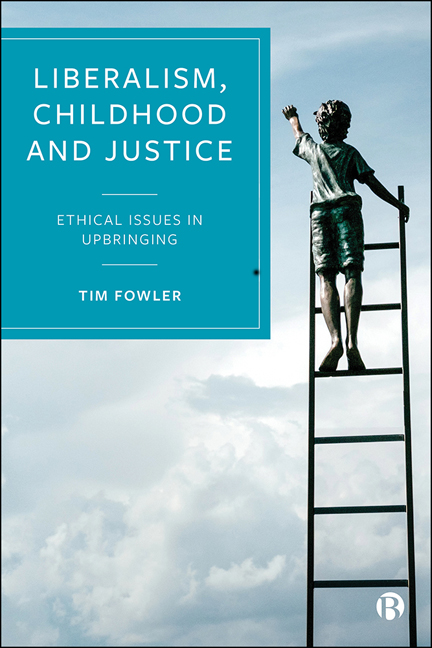Introduction
Published online by Cambridge University Press: 25 February 2021
Summary
This book considers children's place in liberal theory and develops a novel account of what justice requires with respect to children and how relations between adults should be arranged to best achieve this. While the last decade has seen a flourishing debate on children's rights and entitlements, these issues remain relatively peripheral to theoretical debates. The case of children is largely seen as an addendum to be worked out once the central questions of justice between adults have been decided upon. Witness the relatively brief considerations of childhood in the works of the great liberal thinkers of the last century such as John Rawls, Joseph Raz and Ronald Dworkin. Their methods were to begin with the questions of justice that arise between adults, come to some set of principles that solves these matters, then show how those same principles can be applied to children. In contrast, I propose that children must be much more central to political thinking, and that taking their claims seriously means rethinking central elements in leading theories of justice and challenging core elements of received liberal thinking.
Childhood matters for many reasons, but centrally because the nature of childhood undermines the persistent myth that people are best conceived only as independent actors whose outcomes are down to their own choices. Children require the constant care and attention of adults to ensure their very survival. The ways that older children think and act is greatly influenced by the social context in which they grew up. A child's access to social and economic advantages early in life is a central determinant of their later level of economic and social advantage. In these ways, and many others, the shape and success of a person's life is determined by the way that other, older, people live theirs. Children are thus a powerful example of the interdependence between people and the extent to which any one person's projects and life choices are intertwined with the choices of others. Thinking through the case of childhood thus delivers a theory of justice better suited to the reality of interdependent social creatures than to the idealized autonomous subject that underlies much liberal thought.
- Type
- Chapter
- Information
- Liberalism, Childhood and JusticeEthical Issues in Upbringing, pp. vii - xivPublisher: Bristol University PressPrint publication year: 2020



